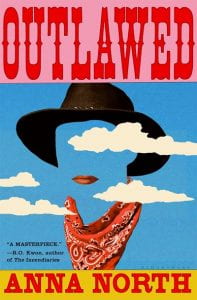Reflect on your understanding of digital literacy.
My understanding of digital literacy is clarifying somewhat, as I read my way through the modules in this course. Literacy and being literate is about making meaning, and communicating it, through signs and symbols – the semiotic system. Digital literacy seems to be all this, but in a digital realm – but this definition is also questioned, say Bacalja et al (2022, p. 254). The authors explain why digital literacy, and the teaching of it, is so complicated, especially because it changes so rapidly. I feel you.
Unlike other eras perhaps, we are in a self-conscious phase where we are already defining and labelling our times (rather than leaving that to a far-future generation). ‘Anthropocene’ has done the rounds, but also ‘information age’ and ‘digital age’. It depends on what people want to focus on, and use as the ‘defining’ quality of our time (hence why it’s usually left till much later!).
It seems like we will need more than one label, in the end, as everything is so much more, now. More information, more destruction, more extinctions, more mining, more consumerism, more technology. And yet also, we have stagnated: we seem to have flatlined in our understanding of what we do, including – especially – digital technologies.
I knew that the ‘digital native’ was a myth from my studies in an earlier unit, which aligned with my observations teaching students ages 16-18 for the last 10 years. Reading Fraillon’s (2019) round-up of the data was both vindicating and a bit depressing. But while Fraillon shared the stats for students performing at Level 1 or below, he didn’t say where the rest of students were sitting. For instance, in 2017, 3% of year 10 students were at Level 1 or below – which is actually pretty good, isn’t it? And an improvement on year 8 results. What are the other 97% achieving in year 10? Regardless, in my experience students are digitally comfortable – with scrolling apps.
It also didn’t surprise me to learn that the way we use technology in the classroom is pretty limited (PowerPoint presentations and Word documents, mostly!). What teacher has the time to a) learn a new technology and b) teach it to their students? I use Padlet sometimes in class, but that’s an easy one. I used Diigo with my Literature class last year, when they were researching for their Independent Study folio. Some of them liked it. I have tried, in past years, blogging – it’s all so much work and teachers are already overworked and stretched thin. So many digital technologies don’t actually make life easier, they actually complicate it.
There are some that I need to be more across, though, especially those digital tools that help students with learning needs like dyslexia, or vision impairment.
One of the things that stood out to me in the article by Bacalja et al (2022) is their acknowledgement that schools are being told to emphasise the teaching of a ‘narrow’ understanding of literacy, and to ‘get back to basics’ (p. 255). This results in a focus on what is assessable in a test, which in turn ‘deprofessionalises’ the teacher. I definitely feel this, and see it and hear in the media and political discourse. The more people focus on how ‘badly’ Australian students are ‘performing’ against other countries, the more they point at teachers and say ‘you’re not doing it right’. They simultaneously cram too much into the curriculum while insisting that we focus only on ‘core’ subjects.
Digital literacy is, of course, one of the first things to be squeezed out, along with learning how to touch type (I’m so saddened that this isn’t taught anymore! I type this with my eyes on the screen or on the paper, my fingers flying across the keyboard – such ease! I can keep up with my thoughts this way – what joy!). Yet of course we are also expected to somehow teach these things?
Digital citizenship or digital literacy isn’t covered in teacher training courses at university, of course.
References
Bacalja, A., Beavis, C., & O’brien, A. (2022). Correction to: Shifting landscapes of digital literacy. The Australian Journal of Language and Literacy, 45(3), 389-389. https://doi.org/10.1007/s44020-022-00027-x
Fraillon, J. (2019, August 05). Digital literacy: Myths and realities [Paper presentation]. Research Conference 2019 – Preparing students for life in the 21st century: Identifying, developing and assessing what matters. https://research.acer.edu.au/research_conference/RC2019/5august/7



















Recent Comments
shannon.badcock
"Yes I wondered/worried about that. I find it hard to separate it from ..."
ederouet
"What a great looking blog! I love your widgets and use of categories ..."